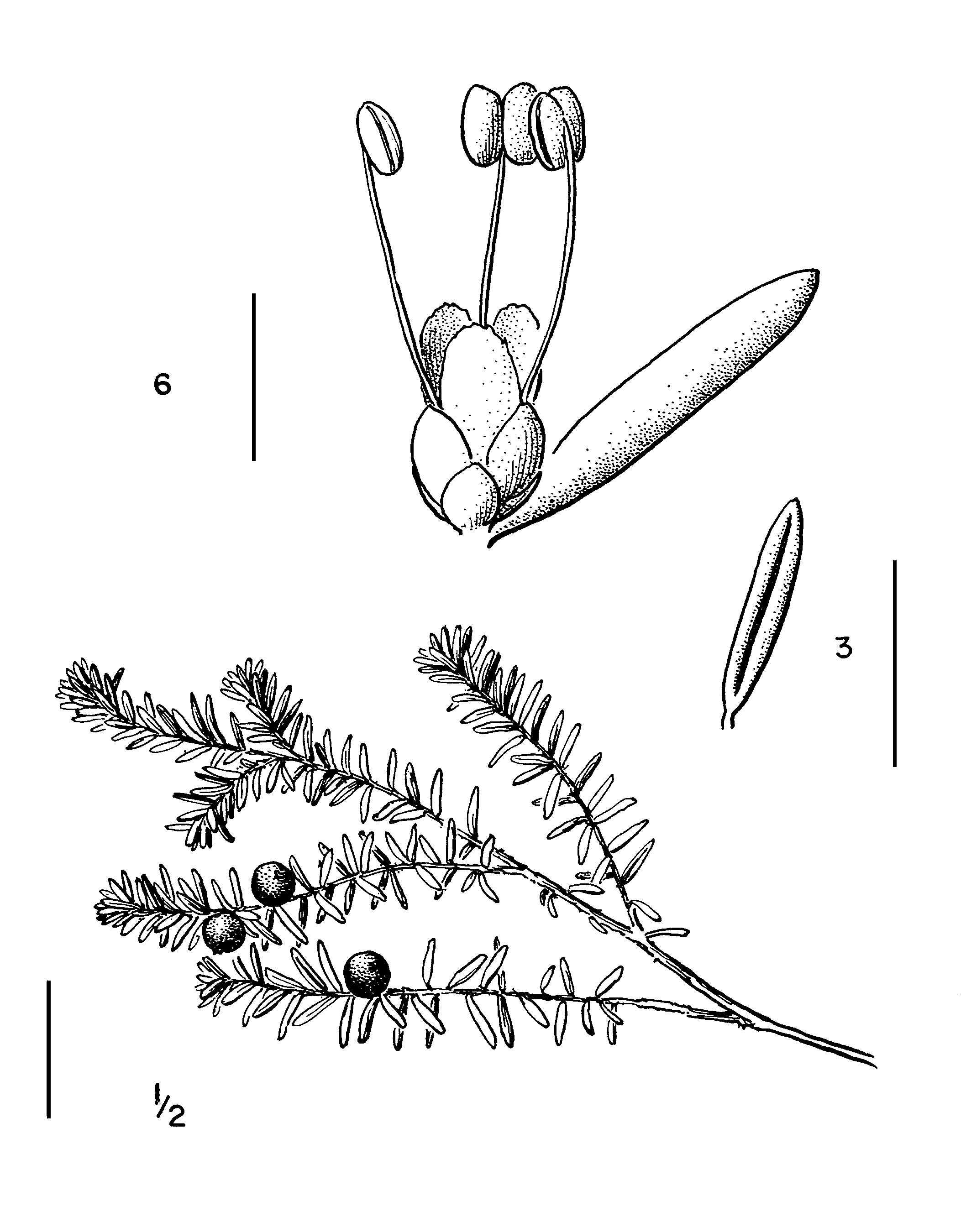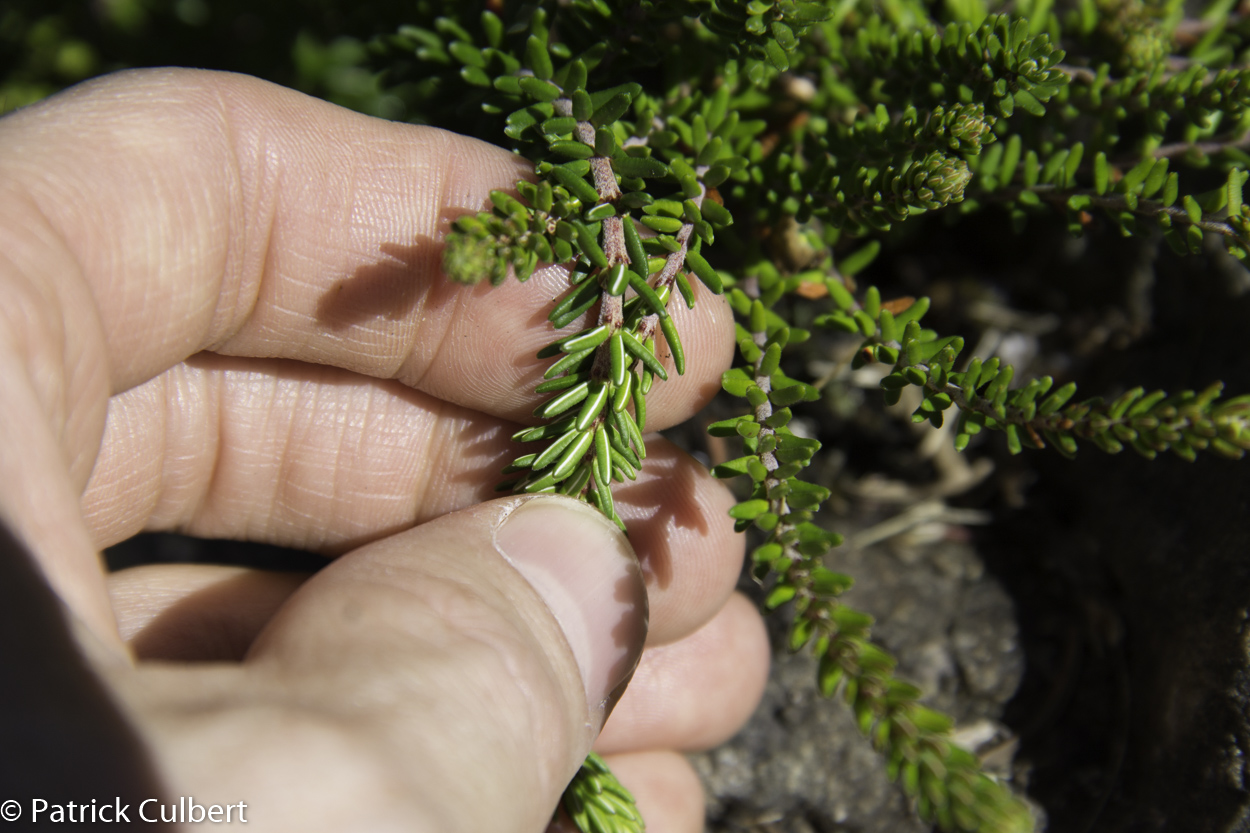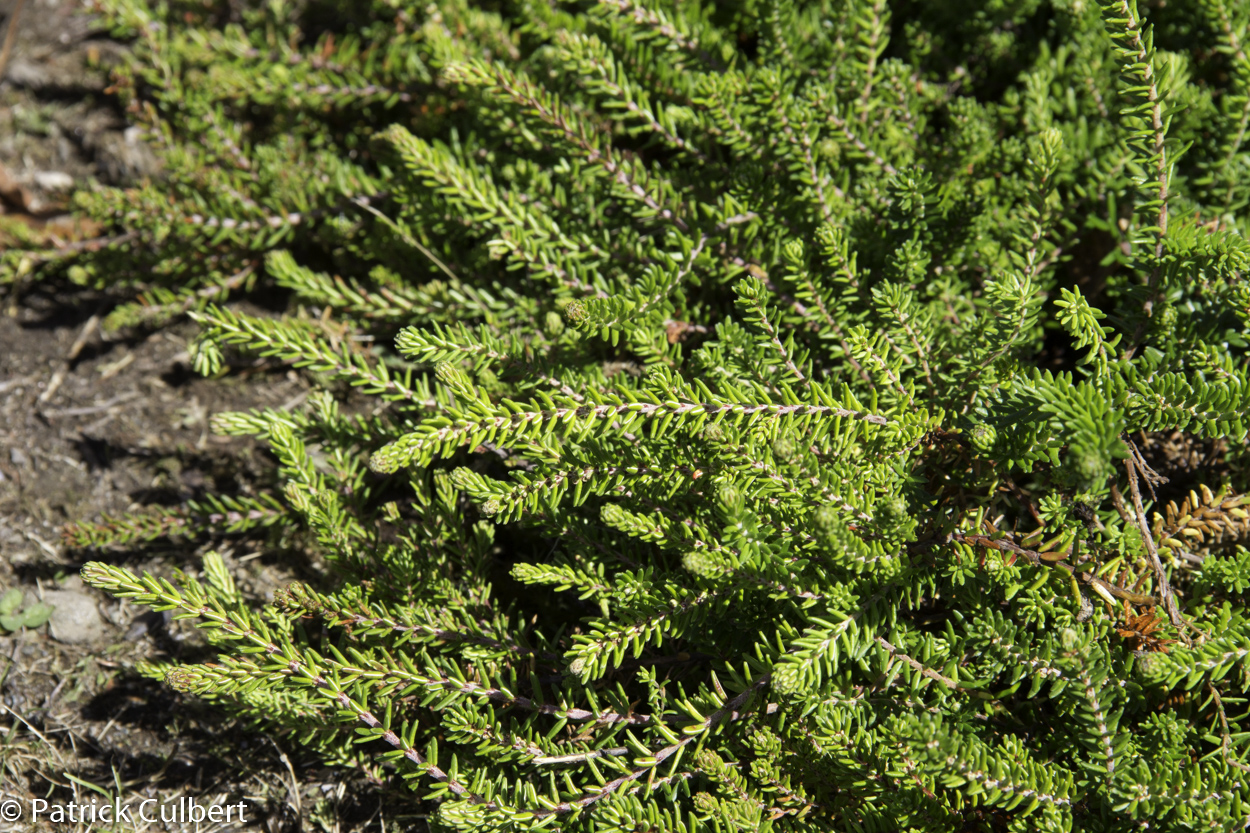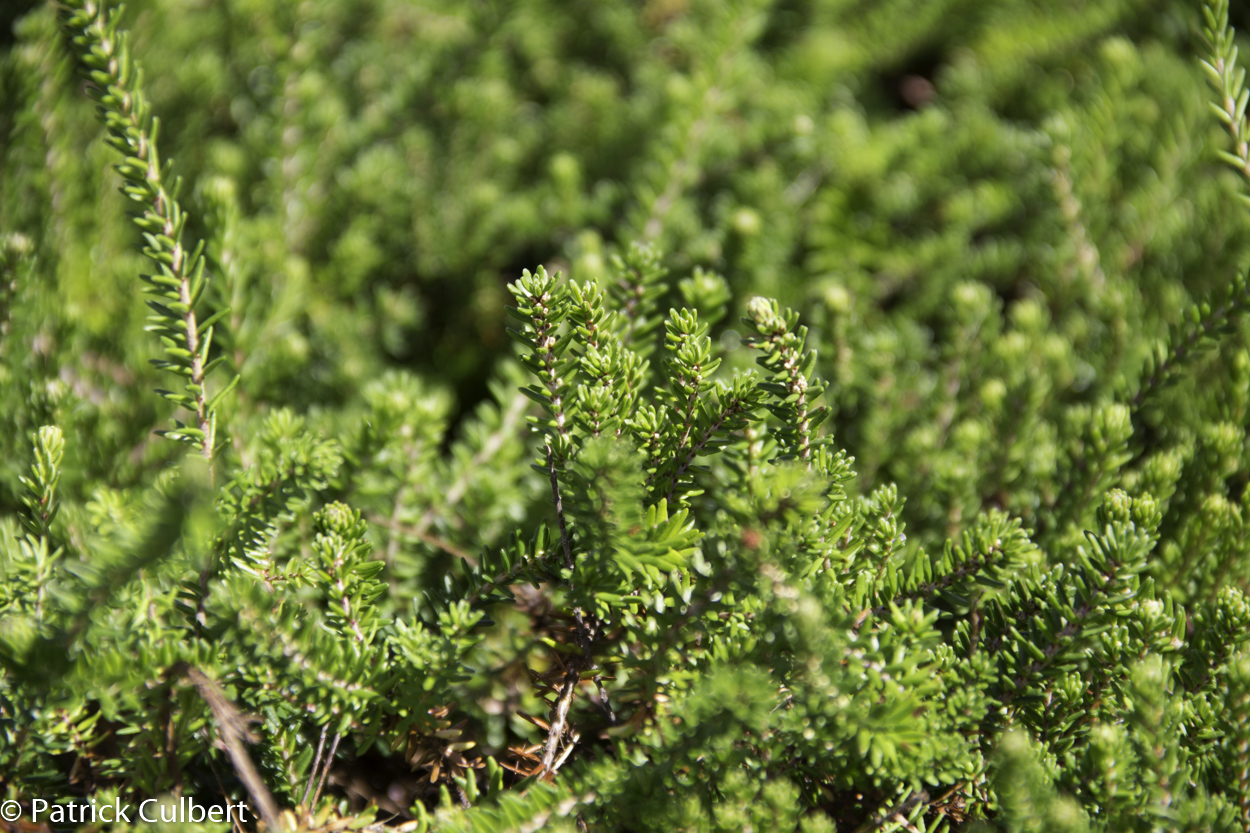Empetrum nigrum – crowberry
Common Name
crowberry
Alternate Common Names
- black crowberry
Family
Ericaceae
Scientific Name
Empetrum nigrum
Soil Moisture Regime (SMR)
- Dry (D)
- Moderately Dry (MD)
- Medium (M)
- Wet (W)
Soil Nutrient Regime (SNR)
- Poor (P)
Video link
Hitchcock, C. Leo, and Arthur Cronquist. Flora of the Pacific Northwest: An Illustrated Manual © 1973. Reprinted with permission of the University of Washington Press.
General / Habitat
- Creeping, mat-forming, evergreen shrub
- Occurring in coastal heathlands and bogs, subalpine parkland, and alpine tundra across all elevations
Key Identifying Characteristics
- Form: Creeping and freely branching, with wooly-haired stems up to 20 cm tall
- Leaves: Evergreen and needle-like; can be whorled or alternate; grooved beneath
- Flowers: Not showy, purplish red flowering early in spring; 2-3 borne in leaf axils
- Fruit: Black berry-like drupes; juicy but not palatable to most
Lookalikes
- Resemble some heathers (Phyllodoce empetriformis, Phyllodoce glanduliflora, Cassiope stelleriana ) when non-reproductive
- Cassiope stelleriana does not have grooved leaves
- Phyllodoce species have longer, slightly flatter
Interesting Characteristics
- A preferred forage for bears
- Also eaten by crows
- Important food source for Inuit and other Arctic aboriginal groups but less so for many peoples in our region
External References
Sources
Douglas, G.W. et al (Editors). 1998-2002. Illustrated Flora of British Columbia, Volumes 1 to 8. B.C. Min. Environ., Lands and Parks, and B.C. Min. For., Victoria, B.C.
Pojar, J. and A. MacKinnon. 2014. Plants of Coastal British Columbia Including Washington, Oregon & Alaska. B.C. Ministry of Forestry and Lone Pine Publishing. Vancouver, B.C.




